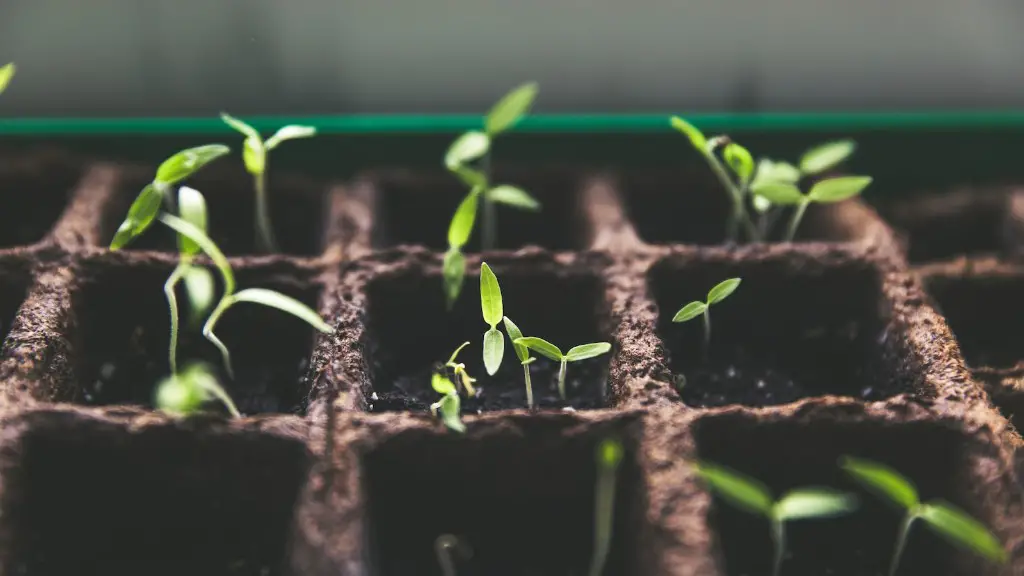Tamil Nadu’s agricultural sector has seen a significant boost in recent years, and the state provides plenty of options for obtaining credit and other finance-related resources. This article will guide readers through the process of obtaining an agricultural loan in Tamil Nadu. Firstly, applicants need to ensure they meet the criteria and select the most appropriate credit provider. Next, they must understand the application process, preparing and submitting the required documentation, and considering the terms of repayment. Similarly, applicants must understand the loan types available, the various financing products, rates of interest and other financial aspects associated with the loan. Thirdly, applicants must check the eligibility criteria for specific loans and decide the loan amount, repayment period and other key considerations. Furthermore, applicants must have a clear idea of the repayment schedules, collecting interest and penalties, and other associated terms. Finally, applicants must submit all documents, sign the contract, and start the repayment process on time.
Eligibility Criteria for Agriculture Loan in Tamil Nadu
In order to avail an agriculture loan in Tamil Nadu, applicants need to meet certain eligibility criteria. Primarily, this includes applicants having attained 18 years of age, along with residence in the state for at least 3 years. Additionally, applicants must possess the right land title and legal documents that match the loan terms. Furthermore, applicants must meet the minimum income and asset criteria, along with a minimum amount of acreage. Similarly, the loan amount sanctioned depends on collateral, income source, and other relevant factors. Moreover, the credit history of the applicant also has a vital role in the loan approval process. Furthermore, particular lenders might have other specific criteria and restrictions.
Types of Agricultural Loan Available in Tamil Nadu
Agricultural loans offered in Tamil Nadu are largely divided into two main categories, namely crop loans and farm equipment loans. Crop loans are granted mainly for anticipated produce, and the loan amount is determined based on the value of the crop. Similarly, the loan amounts for farm equipment loans may range from small to large and are used specifically for purchasing agricultural machinery. Furthermore, some specialized loans are also available, such as agricultural loans to cover the cost of plant and livestock breeding. Applicants need to understand the various types of loans available, and the conditions, criteria, and benefits associated with each.
Documents Required for Agriculture Loan in Tamil Nadu
To obtain an agricultural loan in Tamil Nadu, applicants must submit the necessary paperwork, such as legal documents for land title, identity proof, net income documents and financial statements. Additionally, applicants must submit an estimate of the expected crop yield, any additional collateral and details of the loan in the form of an application. Moreover, mandatory documents must also be provided such as passport-sized photographs and other documents as specified by the lender. Furthermore, additional paperwork might be necessary depending on the loan provider’s terms, such as the lease agreement of land or title deed registration.
Interest Rates for Agriculture Loan in Tamil Nadu
Interest rates for agricultural loans in Tamil Nadu vary among providers, so applicants should compare different lenders to get the best deal. Generally, short-term crop loans attract a lower rate as compared to long-term loans. Similarly, loans offered against collateral will incur a lower rate of interest than unsecured loans. Furthermore, loan amount and the shape of repayment also affects the interest rate, along with any additional charges applicable, such as pre-payment fees.
Repayment Process for Agriculture Loan in Tamil Nadu
Once the agricultural loan is approved by the lender in Tamil Nadu, applicants must follow the repayment process as stipulated. The mode of repayment, terms and conditions, and other repayment details are specified in the loan agreement. Generally, lenders offer flexible repayment methods, such as Standing Instruction for automatic bank or post office deductions, or through repayment coupon books. Additionally, applicants must submit the loan repayment records before the next loan is sanctioned, and for large loans, applicants can negotiate further repayment options.
Timeline for Agriculture Loan in Tamil Nadu
The timeline for getting an agricultural loan in Tamil Nadu depends upon various factors. Generally, a maximum of 2-3 weeks is required for the loan application process, including all paperwork, eligibility checks and other procedures. However, this timeframe can differ based on the loan amount, lender, and other associated factors. Moreover, whenever applying for a loan in Tamil Nadu, applicants should keep in mind the seasonal schedules, such as harvest season, so that they can avail the loan amount in time.
Processing Fees for Agriculture Loan in Tamil Nadu
Most lenders in Tamil Nadu require applicants to pay processing fees for availing agricultural loans. This processing fee may include administrative charges, interest rates, and other related expenses, and is generally 0.25-1% of the loan amount. Additionally, when loan accounts are closed before maturity, or when an issued cheque has bounced or is returned due to several reasons, applicable processing charges are applicable.
Tools for Agriculture Loan in Tamil Nadu
Tamil Nadu provides several online tools and resources for accurate, timely and efficient agricultural loans. These include Agricultural Technology Management Agency, Agricultural Credit Corporation, Mee-Namagiri Krishi Cooperative Corporation, and various other specialized credit organizations. Other online platforms, such as akshayaseva.com, provide access to information and support services for applicants, such as loan status and eligibility checks, details on government loan schemes, and so forth.


